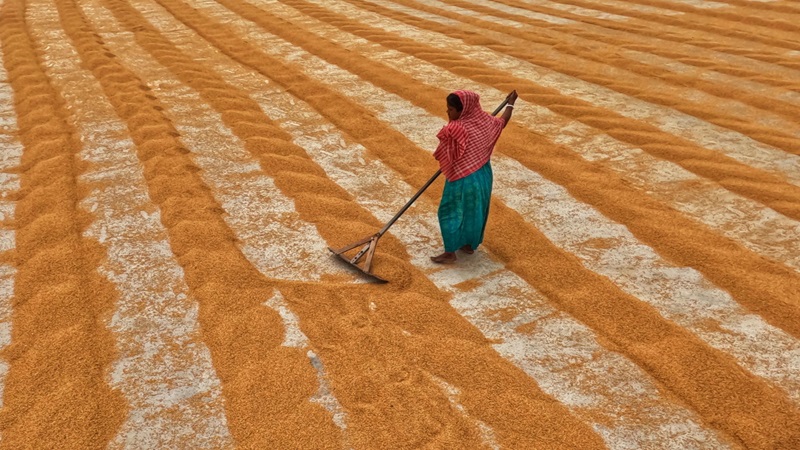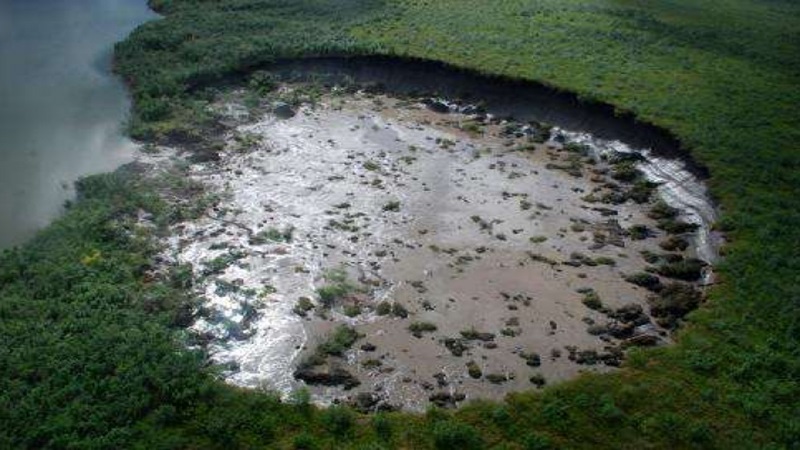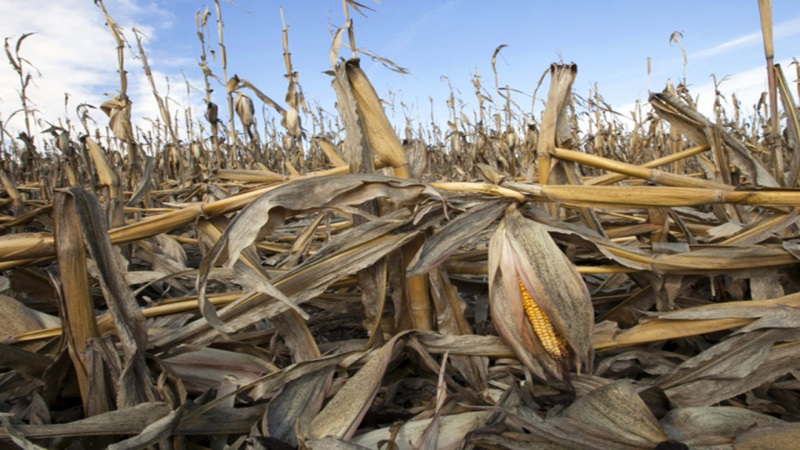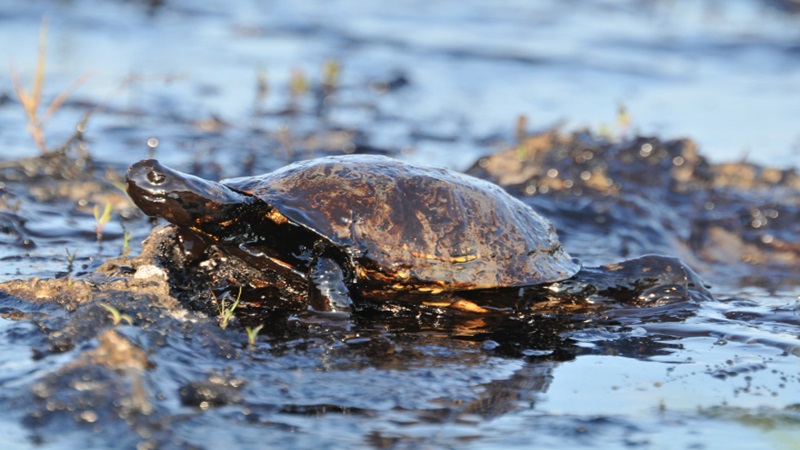
Betty Wairegi
Reclaiming Our Seeds, Securing Our Future: Why Indigenous Farming Must Be Protected
Most Read Stories Today
-
Water Scarcity and Artificial Rainfall: The Positive and The Negative Effects of Cloud Seeding, including Health Hazards and Climate Implications.
-
Bridging the Gulf Between Scientific Knowledge and Public Understanding.
-
Renewable Energy in Rural Areas: Challenges, Opportunities, and Successful Rural Projects
-
Are African Plants Getting Ignored Amidst the Climate Change?
-
South Korea's floods: root causes and prevention strategies.
-
Climate Change's Grip on Northern Ghana's Agricultural Landscape.
-
Degenerative Impact of Hydrocarbons On The Environment.
-
Community-Based Adaptation: Land Management and Fire Prevention Techniques in the Heart of Mexico
-
Negative Impacts of Climate Change on Food Security in South Africa
-
Five most effective ways of communicating climate science to the public
A friend recently shared an article calling for signatures on a petition to stop farmers from being jailed for using indigenous seeds.
It immediately caught my attention—not just because of the injustice, but because these seeds have been the backbone of our communities, economies, and health for generations. Indigenous crops are resilient, deeply adapted to our climate, and provide affordable, nutritious food for millions across Africa. Yet, instead of supporting farmers who preserve this legacy, policies are being designed to criminalize them.
This is more than a debate about seeds—it concerns food security, climate resilience, and economic independence. Climate change is already threatening Africa’s ability to feed itself, with erratic rainfall, droughts, and declining soil fertility. At a time when we should be strengthening our food systems with crops that have stood the test of time, we are instead allowing capitalism and corporate interests to dictate what we grow, eat, and depend on.
We must do better. We need policies that empower farmers, protect indigenous knowledge, and prioritize Africa’s agricultural future over profit-driven agendas. Our continent cannot afford to forget its roots. The future of food security in Africa depends on our choices today.
Due to new policies, Kenya's food production has shifted, negatively impacting small-scale farmers. The move away from indigenous seeds, once a source of food abundance, towards corporate-controlled seeds has led to debt and food insecurity. Traditional seeds, adapted to the climate and seasons, previously ensured plentiful harvests. However, the current capitalist system disadvantages local farmers with a lack of incentives and reliance on costly corporate seeds.
For years, Africa’s indigenous seeds have been sidelined in favor of commercial, hybrid varieties—often marketed as "improved" but requiring farmers to buy new seeds every planting season. However, as climate change disrupts rainfall patterns and worsens food insecurity, the wisdom of our traditional farming practices is becoming undeniable.
“We realize that some of the traditional varieties that we had abandoned then are more resilient to climate change, so when you introduce them, especially in marginal areas, those varieties outperform the improved varieties,” said Desterio Nyamongo, director of the Genetic Resources Research Institute. This statement underscores what many farmers have long known: indigenous crops are not just part of our history; they are key to our survival. Instead of criminalizing farmers for preserving these seeds, we should be strengthening policies that protect and promote them.
As restrictive seed laws threaten farmers' ability to plant indigenous crops, community seed programs have emerged as a powerful resistance. These initiatives enable farmers to preserve, exchange, and cultivate traditional seed varieties that are better suited to local climates and ecosystems. Unlike commercial hybrid seeds that require farmers to buy new stock each season, indigenous seeds can be saved and replanted, reducing dependency on costly corporate-controlled seed markets.
Organizations like Seed Savers Network Kenya and various farmer cooperatives are working to establish community seed banks. These seed-sharing systems preserve genetic diversity and strengthen farming communities by fostering collaboration and reducing reliance on expensive inputs.
Yet, despite their success, community seed programs face growing threats from restrictive agricultural policies. Seed laws in Kenya, for example, prohibit the sale of uncertified seeds, a rule that disproportionately affects smallholder farmers who rely on indigenous crops. Such policies, often influenced by corporate interests, prioritize profit over food sovereignty and climate resilience.
To truly address food insecurity and climate change, Africa must embrace policies that protect and promote indigenous farming. Governments should support community-seed initiatives instead of penalizing farmers for sustaining agricultural traditions that have fed generations. The future of our continent’s food security depends on recognizing the value of what we already have—our land, our knowledge, and our seeds.
The fight for indigenous seeds is about more than agriculture—it’s about sovereignty, survival, and legacy. For centuries, African farmers have grown resilient crops that sustain families and adapt to climate change. Yet, restrictive policies and corporate influence now threaten what has always been ours. If capitalism dictates our food systems, we risk losing not just seeds but our independence and food security. As climate change worsens, the solution lies not in profit-driven agriculture but in the traditional knowledge that has sustained Africa for generations.






 English
English العربية
العربية Български
Български 简体中文
简体中文 繁體中文
繁體中文 Hrvatski
Hrvatski Čeština
Čeština Dansk
Dansk Nederlands
Nederlands Suomi
Suomi Français
Français Deutsch
Deutsch Ελληνικά
Ελληνικά हिन्दी
हिन्दी Italiano
Italiano 日本語
日本語 한국어
한국어 Norsk bokmål
Norsk bokmål Polski
Polski Português
Português Română
Română Русский
Русский Español
Español Svenska
Svenska Català
Català Filipino
Filipino עִבְרִית
עִבְרִית Bahasa Indonesia
Bahasa Indonesia Latviešu valoda
Latviešu valoda Lietuvių kalba
Lietuvių kalba Српски језик
Српски језик Slovenčina
Slovenčina Slovenščina
Slovenščina Українська
Українська Tiếng Việt
Tiếng Việt Shqip
Shqip Eesti
Eesti Galego
Galego Magyar
Magyar Maltese
Maltese ไทย
ไทย Türkçe
Türkçe فارسی
فارسی Afrikaans
Afrikaans Bahasa Melayu
Bahasa Melayu Kiswahili
Kiswahili Gaeilge
Gaeilge Cymraeg
Cymraeg Беларуская мова
Беларуская мова Íslenska
Íslenska Македонски јазик
Македонски јазик יידיש
יידיש Հայերեն
Հայերեն Azərbaycan dili
Azərbaycan dili Euskara
Euskara ქართული
ქართული Kreyol ayisyen
Kreyol ayisyen اردو
اردو বাংলা
বাংলা Bosanski
Bosanski Cebuano
Cebuano Esperanto
Esperanto ગુજરાતી
ગુજરાતી Harshen Hausa
Harshen Hausa Hmong
Hmong Igbo
Igbo Basa Jawa
Basa Jawa ಕನ್ನಡ
ಕನ್ನಡ ភាសាខ្មែរ
ភាសាខ្មែរ ພາສາລາວ
ພາສາລາວ Latin
Latin Te Reo Māori
Te Reo Māori मराठी
मराठी Монгол
Монгол नेपाली
नेपाली ਪੰਜਾਬੀ
ਪੰਜਾਬੀ Afsoomaali
Afsoomaali தமிழ்
தமிழ் తెలుగు
తెలుగు Yorùbá
Yorùbá Zulu
Zulu ဗမာစာ
ဗမာစာ Chichewa
Chichewa Қазақ тілі
Қазақ тілі Malagasy
Malagasy മലയാളം
മലയാളം සිංහල
සිංහල Sesotho
Sesotho Basa Sunda
Basa Sunda Тоҷикӣ
Тоҷикӣ O‘zbekcha
O‘zbekcha አማርኛ
አማርኛ Corsu
Corsu Ōlelo Hawaiʻi
Ōlelo Hawaiʻi كوردی
كوردی Кыргызча
Кыргызча Lëtzebuergesch
Lëtzebuergesch پښتو
پښتو Samoan
Samoan Gàidhlig
Gàidhlig Shona
Shona سنڌي
سنڌي Frysk
Frysk isiXhosa
isiXhosa
Terms & Conditions
Subscribe
Report
My comments